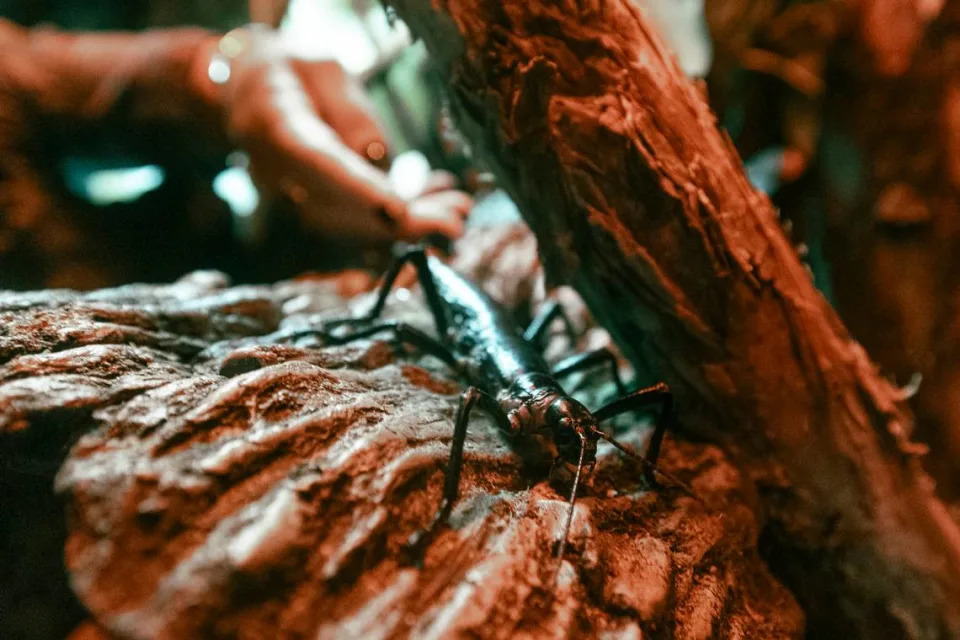Don Sweeney
Tue, December 26, 2023
A California zoo has put the rarest insects on Earth — also known as “tree lobsters” — on exhibit to the public as part of a breeding program, officials said.
Lord Howe Island stick insects — so named for their stick-like appearance — were once thought to be extinct before they were rediscovered on the nearby Ball’s Pyramid volcano in 2001, the San Diego Zoo Wildlife Alliance said in a Dec. 19 news release.
The insects are now on exhibit to the public at the San Diego Zoo, which is the only U.S. zoo working with the Melbourne Zoo on a breeding program to save the critically endangered insects.

Critically endangered Lord Howe Island stick insects, the rarest insects on Earth, are on exhibit at the San Diego Zoo in California.
“San Diego Zoo Wildlife Alliance is committed to invertebrate conservation, and bringing our guests close to this rare and iconic species is a great way to raise awareness for the lesser-known animals that run the world,” Paige Howorth, McKinney Family director of invertebrate care and conservation for the zoo, said in the release.
“In so many ways — pollination, decomposition, predation, and simply as food for other animals — invertebrates make life possible for us all,” Howorth said.
The stick insects are native to the Lord Howe Island group, off the eastern coast of Australia, zoo officials said. They are nocturnal and flightless, and grow up to 6 inches long.
“They are called tree lobsters because they superficially resemble lobsters with their shiny exoskeletons and jointed appendages,” Howorth told McClatchy News, adding they are mostly seen on trees in the daytime.
The insects forage at night for food on host plants, such as Moreton Bay fig and wooly tea tree, and spend their days “resting in tree hollows and other retreats,” zoo officials said.
In the exhibit, the insects “are maintained within a reversed light cycle so that guests can view them during the day under red light, which is invisible to the insects and simulates night, their active time,” the zoo said.
In the wild, they are threatened by invasive plants and predators, including rats, which originally drove them into extinction on Lord Howe Island, the zoo said.
Rats, which are not native to the islands, arrived aboard the SS Makambo, a trade ship grounded there in 1918, Howorth told McClatchy News.
“Sightings of the stick insects (and numerous other plants and animals) decreased dramatically in just two years due to the rats’ activity,” she said. The stick insects were presumed extinct sometime between 1920 and 1930.
Their new home on Ball’s Pyramid also faces threats from catastrophic weather and a shortage of host plants, and supports a limited number of stick insects.
Rats now fill the ecological niche once occupied by stick insects “as primary consumers of plant material and food for other native wildlife,” the zoo said.
A rat eradication program began on the islands in 2019, “involving the reappearance of many other rare or presumed extinct plant and animal species that once fell prey to introduced rats,” zoo officials said.
No comments:
Post a Comment